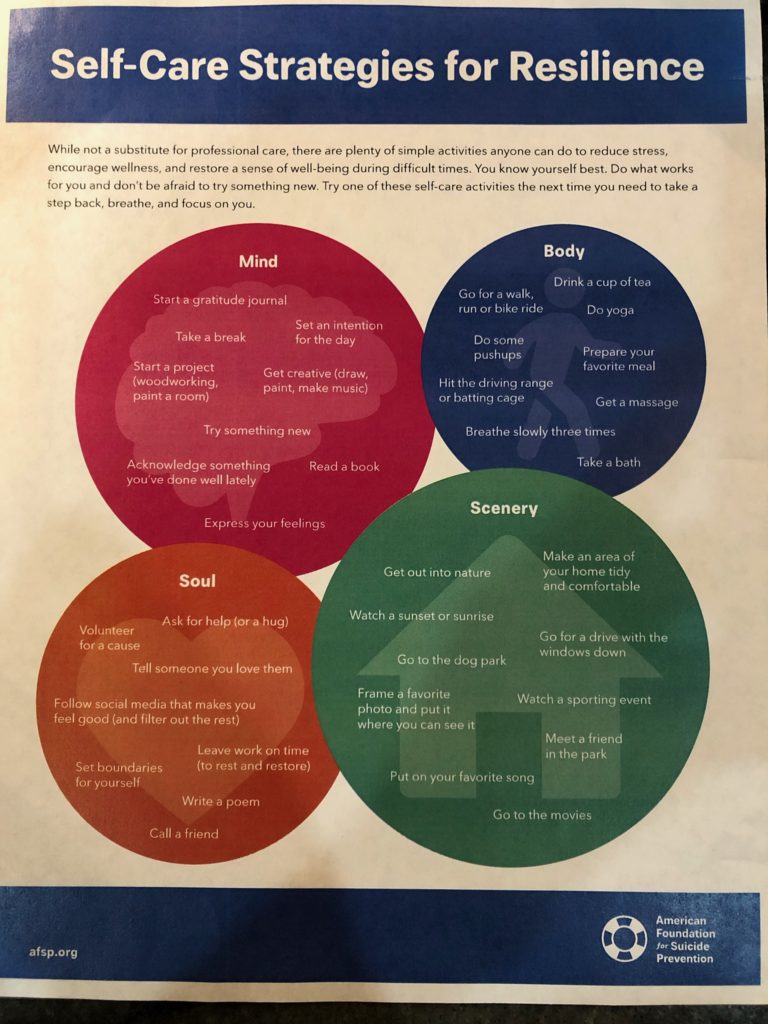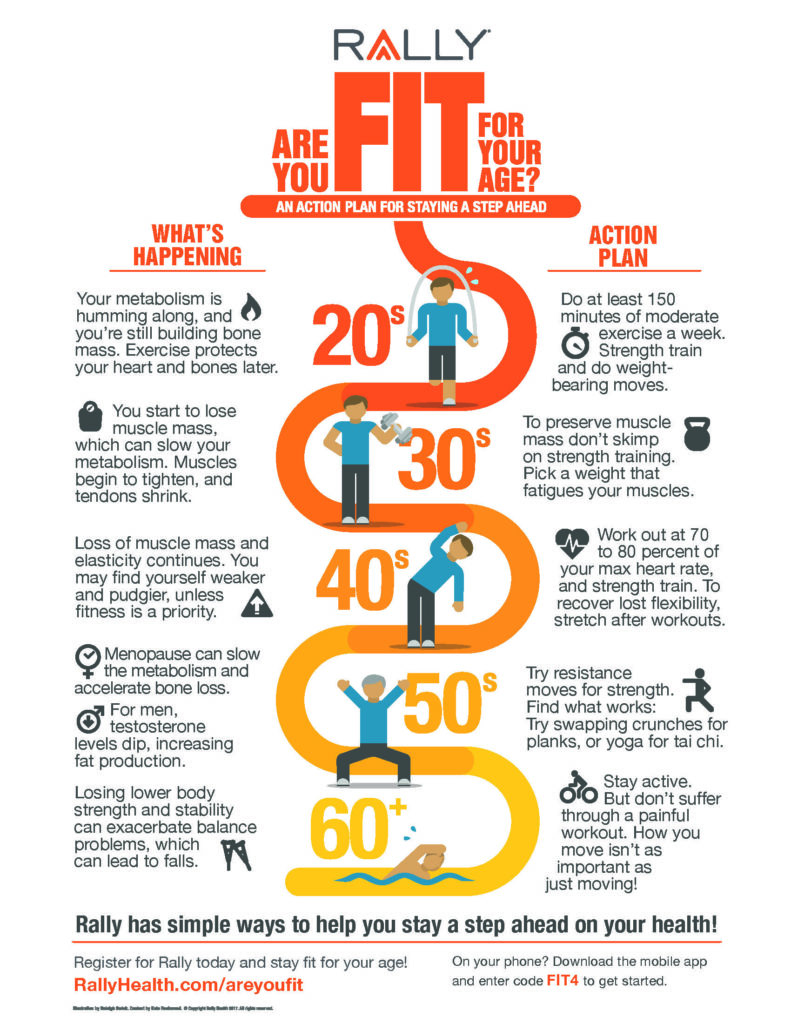Self-Care Month
August 2, 2019
We share excerpts this week from author Jaimee Ratliff as we focus on letting go. We challenge you to keep a Gratitude Journal this month (and maybe beyond). Every week spend 15 minutes writing at least five things you are grateful for. For more tips read here: https://ggia.berkeley.edu/practice/gratitude_journal.
If you let go a little, you will have a little peace. If you let go a lot, you will have a lot of peace.” ~Ajahn Chah
The following is excerpted from https://medium.com/personal-growth/to-anyone-who-struggles-with-letting-go-ed5bf12fb1e6 where you can read the full article.
“Letting go in this sense is releasing all doubt, worry, and fear about a situation, person or outcome. It’s releasing anything that disrupts your happiness and no longer serves you on your journey… and focus on what you can control, instead. It’s an internal process that must happen for you to truly feel better and get on with life in a healthy way…. honor where we are on our individual journeys of letting go. Know that wherever you are right now, is okay.
- Mind control —Making an intentional choice to no longer let past issues and people who hurt us control the mind is what can break the cycle of unhealthy rumination on these thoughts, ideas and feelings. The reality is your thoughts don’t define your value. You are not the summation of your past experiences. Just because something doesn’t work out, doesn’t mean you are now labeled as a failure or you’re incapable of receiving what you desire in life. Thoughts are nothing more than thoughts. What we decide to do with them is what can either make or break us.
- Getting it all out —While obsessing over the details of what happened in the past is never the healthy route to take (we all do it), it’s important to analyze why you’re feeling a certain way, and how you can show up differently the next time. There are so many breakthroughs to uncover through self reflection. Other ways to express yourself include talking to a trusted friend, family member or therapist. Sometimes, friends and family sit so close to a particular situation that they’re unable to provide unbiased support the way in which you need it. When we continue holding on to grief, anxiety, pain, and resentment from the past without fully working through each situation, all of these experiences, patterns, and narratives accumulate inside the heart, making it even more difficult to let things go.
- Acceptance — We all want to know why something ended the way it did or how someone could end up hurting us so badly without having any concern about how it negatively impacted us. The painful truth is, we don’t always get that “closure” we think we ought to have. Not everyone will explain why they did something or even apologize when they are at fault. Fully accepting the situation as it is without constantly wishing it would be different is really the only way to getting on the road to being okay.
- Forgiveness — To truly let go and move on, sometimes you have to forgive people who aren’t even sorry. Sometimes you have to accept an apology you’ll never receive. That takes so much strength and courage and humility. While it may seem unfair and backwards, sometimes, that’s how the chips will fall. The most important thing is that we also have to learn to forgive ourselves. This can be done by writing a letter to yourself, replacing self-loathing with compassion, and deciding to make better choices next time.
- Stay present — The present is all we have. We can’t go back and fix the past, and what happens in the future isn’t here yet. We must make an effort everyday to remember that and allow ourselves to open up and enjoy what is unfolding right in front of us: all parts of the journey both easy and hard, good and bad.
I owe it to myself to be more kind to me. Everyday we have a choice to keep holding on just a little bit longer, or conclude that today is the day we will finally let go.”
Originally published at ThisWayNorth.net.
August 14, 2019
It’s so important to find a balance in life to avoid burnout, a problem that cannot be neglected. “Burnout is a state of emotional, physical, and mental exhaustion caused by excessive and prolonged stress. It occurs when you feel overwhelmed, emotionally drained, and unable to meet constant demands. As the stress continues, you begin to lose the interest and motivation that led you to take on a certain role in the first place.” Read the rest of the article here: https://www.helpguide.org/articles/stress/burnout-prevention-and-recovery.htm
Ask yourself:
- Have you become cynical or critical at work?
- Do you drag yourself to work and have trouble getting started?
- Have you become irritable or impatient with co-workers, customers or clients?
- Do you lack the energy to be consistently productive?
- Do you find it hard to concentrate?
- Do you lack satisfaction from your achievements?
- Do you feel disillusioned about your job?
- Are you using food, drugs or alcohol to feel better or to simply not feel?
- Have your sleep habits changed?
- Are you troubled by unexplained headaches, stomach or bowel problems, or other physical complaints?
You might be more likely to experience job burnout if:
- You identify so strongly with work that you lack balance between your work life and your personal life
- You have a high workload, including overtime work
- You try to be everything to everyone
- You work in a helping profession, such as health care
- You feel you have little or no control over your work
- Your job is monotonous
From https://www.mayoclinic.org/healthy-lifestyle/adult-health/in-depth/burnout/art-20046642
Excerpts from “Burnout Busters: 10 Ways to Cope When Work Becomes Overwhelming”
Jan 24, 2019 By Michael Staver
So what can stressed-out workplace warriors do to avoid experiencing a total meltdown? Begin by incorporating the following “burnout busters” into your life:
- Start the day with some high-energy music. Research shows that people who listen to high-energy music before they face the day’s challenging situations increase their productivity by as much as 200 percent.
- Set aside blocks of time to complete various tasks. For example, you might designate the hour from 2-3 p.m. for dealing with e-mail. Don’t allow yourself to be interrupted during this time. You’ll be surprised at how much your efficiency will increase.
- Adopt “fix it, then forget it” as your mistake mantra. Do everything you can to fix a problem with clients or associates in order to make them happy. After that, do not dwell on what went wrong.
- Get an accountability partner to help you stay focused. Make sure it’s someone you trust and feel comfortable enough with to just be yourself. Meet with this person at least once a week to talk about your goals, progress, setbacks and thoughts on your personal and professional life.
- Lighten up. Attach a funny cartoon to routine, boring paperwork at the office. You might also consider installing a “humor board” in your office where people can share cartoons, jokes or funny pictures—it’s a reminder to everyone that a good hearty laugh is the best stress releaser of all.
- Take a nonworking lunch now and then—with others or by yourself. This gives you a respite from the pressure cooker of stress. If you don’t feel like dealing with people, eat lunch by yourself a couple times a week. There can be tremendous power in silence.
- Take a power nap. If you feel tired and unable to concentrate, a 15- or 20-minute nap will work wonders. These few minutes will give you almost the same benefit as a long, luxurious sleep—amazing, but true.
- Walk it off . . . exercise! You can take a walk around the block a few times during lunch or in the evening. Exercise makes you feel good about yourself, helps dissipate built-up stress and allows for more refreshing sleep.
- Use those vacation days. Really! Give yourself a break. If you don’t make time to relax away from work, you will become bitter and unproductive when you are there. Ultimately, you’ll become a victim of burnout. The most productive workers take time to relax—guilt-free.
- Practice saying “NO.” When you are already booked or have all the commitments you can handle, say no to anyone who asks you to take on even more work or social obligations. If you really think it could cost you your job or a friendship, it might be time to reevaluate your career or your friends.
Read on for more ‘burnout buster’ thoughts and ideas… https://www.helpguide.org/articles/stress/burnout-prevention-and-recovery.htm
Attached is ‘Self-Care Strategies for Resilience’ provided by the American Foundation for Suicide Prevention. Print a copy and keep nearby as a reminder to do for you. There are a variety of simple activities anyone can do to relieve stress and restore a sense of well-being. Add these items to your Gratitude Journal. Share your successes at a staff meeting or IDT.

August 21, 2019
“Exercise is a celebration of what your body can do. Not a punishment for what you ate.” Anonymous
In your Gratitude Journal, document physical activity daily. Take a walk. Count your steps. Take the stairs, etc. Recruit a buddy to go with you—getting fit is more fun together. Read the attachment to see how your fitness level corresponds to your age.
Are you a member of a gym? Do you go? Those are two different questions, right? Read on for 8 good reasons why you should be going….and then get with it! If you’ve got a membership then put it on your schedule and make it happen! If you’re not a member of a local gym – check into it! There are many benefits! And on that note, we are actively looking for discounts that employees of Arkansas Hospice can partake of if they choose. Look for more information on this in September/October on a separate email.
For more information from our insurance United Healthcare, watch the Get Up and Go video.
August 28, 2019
“Don’t be shy about asking for help. It doesn’t mean you’re weak, it only means you’re wise.” – Unknown
EMPLOYEE ASSISTANCE PROGRAM
Did you know about this great benefit offered to us? The Employee Assistance Program provides help for employees in a wide range of personal and work related problems. In some instances this would also include spouse, children or those living in the household. Available areas of assistance are Financial Concerns, Grief Counseling, Legal Issues, Stress, Substance Abuse, Family/Martial Problems and a host of other areas for which the employee may need professional counseling. This program is funded by Arkansas Hospice and your use of it is completely anonymous to the employer. Information is protected by state and federal law and the professional standards of confidentiality. For more information or to make a confidential appointment with the EAP contact them at 1-800-542-6021. Take a moment and check out their website – lots of resources available to you!
Also attached is an informational poster and the EAP newsletter Keys to Empowerment.
Be Well…

Arkansas Hospice Employee Wellness Council (EWC) Keeping you Well – Mind, Body, & Spirit
CLICK HERE to reach us!




 Registered 501(c)(3). EIN:
Registered 501(c)(3). EIN: